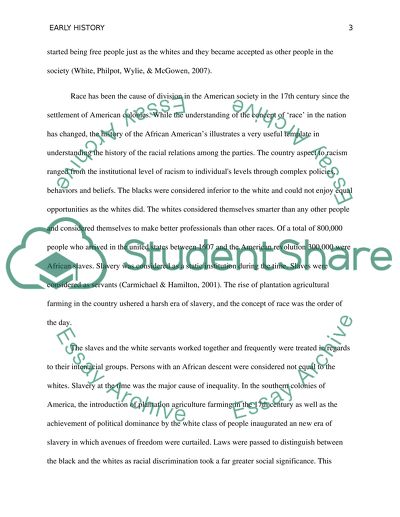Cite this document
(“America likes to think of itself as always having been a land of Essay”, n.d.)
America likes to think of itself as always having been a land of Essay. Retrieved from https://studentshare.org/history/1659203-america-likes-to-think-of-itself-as-always-having-been-a-land-of-toleration-and-equality-but-was-this-the-case-in-the-17th-century-1600s-just-who-was-tolerated-and-who-was-not-who-was-granted-social-and-political-equality-and-who-was-not-why-be
America likes to think of itself as always having been a land of Essay. Retrieved from https://studentshare.org/history/1659203-america-likes-to-think-of-itself-as-always-having-been-a-land-of-toleration-and-equality-but-was-this-the-case-in-the-17th-century-1600s-just-who-was-tolerated-and-who-was-not-who-was-granted-social-and-political-equality-and-who-was-not-why-be
(America Likes to Think of Itself As Always Having Been a Land of Essay)
America Likes to Think of Itself As Always Having Been a Land of Essay. https://studentshare.org/history/1659203-america-likes-to-think-of-itself-as-always-having-been-a-land-of-toleration-and-equality-but-was-this-the-case-in-the-17th-century-1600s-just-who-was-tolerated-and-who-was-not-who-was-granted-social-and-political-equality-and-who-was-not-why-be.
America Likes to Think of Itself As Always Having Been a Land of Essay. https://studentshare.org/history/1659203-america-likes-to-think-of-itself-as-always-having-been-a-land-of-toleration-and-equality-but-was-this-the-case-in-the-17th-century-1600s-just-who-was-tolerated-and-who-was-not-who-was-granted-social-and-political-equality-and-who-was-not-why-be.
“America Likes to Think of Itself As Always Having Been a Land of Essay”, n.d. https://studentshare.org/history/1659203-america-likes-to-think-of-itself-as-always-having-been-a-land-of-toleration-and-equality-but-was-this-the-case-in-the-17th-century-1600s-just-who-was-tolerated-and-who-was-not-who-was-granted-social-and-political-equality-and-who-was-not-why-be.


